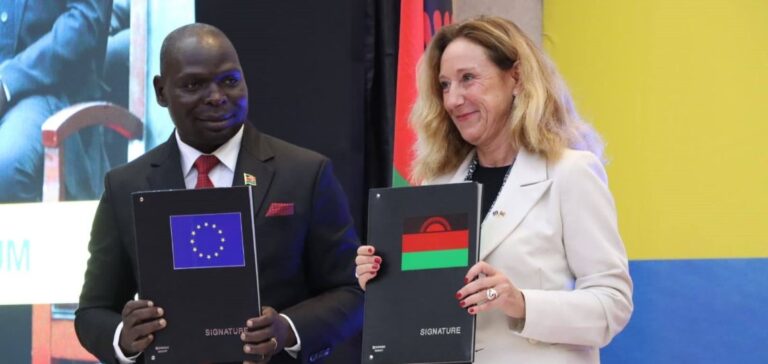The European Union (EU) is reinforcing its cooperation with Malawi by launching an investment program worth over 500 million euros to develop the country’s energy sector. This plan, initiated during the Malawi-EU Investment Forum in November 2024, brings together the European Investment Bank (EIB) and several European financial institutions. It is structured as a mix of concessional loans, grants, and guarantees, aligning with the EU’s Global Gateway strategy.
A Structured Investment Framework
The announced funding aims to enhance electricity generation, transmission, and distribution in Malawi. Several strategic projects are under evaluation, including the construction of the Eastern Backbone Transmission Line, a key initiative under the Global Gateway program, and the Mpatamanga hydropower plant. Additionally, the planned energy interconnection between Malawi and Mozambique is expected to integrate the country into the Southern Africa Power Pool, facilitating regional energy trade.
A Partnership with Local Institutions
The EU is collaborating with Malawi’s Ministry of Energy, state-owned operators ESCOM and EGENCO, and the regulatory body MERA. The objective is to ensure the implementation of investments within a stable regulatory framework. In addition to physical infrastructure, the EU is also funding initiatives aimed at strengthening energy sector governance, including the Wala Malawi Energy program, which supports legislative and regulatory reforms to attract private investment.
A Leverage for Regional Integration
The energy interconnection with Mozambique represents a strategic advancement for Malawi. By facilitating electricity exchange with neighboring countries, Malawi could not only meet growing demand but also export part of its energy, particularly from renewable sources. This initiative is part of a broader international cooperation effort, supported by the G20 and the African Union, to accelerate electrification across the continent.





















